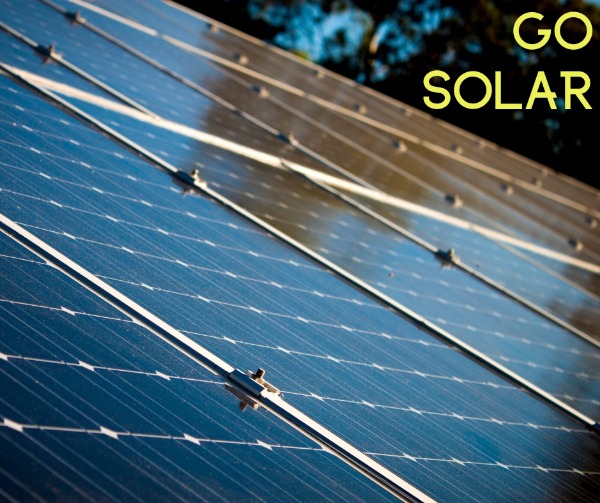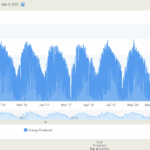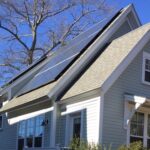How does solar power work? Solar electric systems, also known as solar photovoltaics or solar PV, convert sunlight into electrical energy through an array of solar panels that connect to a building’s electrical system or directly to the electrical grid. The Massachusetts Clean Energy Center (MassCEC) has some good background information on this here.
How do I know my home is good for solar? Go to Google Project Sunroof to get a quick evaluation of the square area of your roof and the approximate number of hours of usable sunlight per year. Enter your address and click on “Check My Roof”. Roofs that face south with little shade are best, but roofs that face east and west can work if there is little shade. Ideal roofs have large expanses of open areas but panels can be placed on smaller areas as well. Remember that this is just a rough assessment. You need to request a free site visit from a solar installer for an accurate picture of your roof’s solar potential and payback periods. Any installer you contact should be able to tell you on the phone if your roof is a good candidate.
What kind of maintenance is required on solar systems? Your solar system should be mostly maintenance free over its 25+ year life. Rain and snow will generally keep the panels clean and free of debris. Removing snow is not recommended since you risk damaging the panels. Since they are made of smooth tempered glass, snow slides off the panels as sunlight begins to warm the panels. Even if your internet or reporting system goes down, the panels will keep producing and your electric meter will run backwards. It is rare for the panels to stop functioning.
What is the process of going solar? Generally, a solar installer will request a copy of your electric bill and prepare a proposed layout and financial estimate based on your usage and your available roof space. Some parts of your roof may get more sun than others. Once you approve the design and sign a contract, the solar installer will handle the installation, checking roof structural support, pulling permits, and scheduling the work. It may be a month or two until installation. Actual installation is usually completed in one or two days. After required electrical inspections, Eversource will install a net meter and give you approval to power up your system.
What if my roof is old, should I replace it before installing solar panels? Fifteen years is about the dividing line between installing panels on the current roof and replacing the roof and then installing panels. If you install the panels on anthe existing roof, the panels will protect the part of the roof on which they are installed. You can have the panels taken off and reinstalled when you decide to re-roof. If you decide to re-roof before installing panels, you may be able to claim the 26% federal tax credit for the cost of the new roof under the panels.
What are other benefits of solar PV? Solar PV panels are usually warrantied for 25 years and inverters for 10 years, and usually require no maintenance. With the potential for free electricity to home buyers, solar panels can increase the value of your home. Learn about the experience of several homeowners who have installed solar in the Newton area here and here.
What is net metering and how does it help the solar customer? Residential solar systems in Concord and other towns are allowed to use net metering if the system rating is below 10 KW DC. Net metering credits you for every kWh of electricity produced by your solar system, regardless of whether you use that electricity now or at a future time. For example, in the summer, you will typically produce more electricity in a month than you consume, but the excess electricity that you did not use gets put back on the electrical grid and you get full credit for that electricity when you need to use it later, such as during the winter months. Think of it like rollover minutes on a phone plan; they can be carried forward to the next month.
Net metering is done by changing the utility electric meter on your home to a “net meter” that runs forwards and backwards. When you use more electricity than you produce, the meter runs forwards. When you produce more electricity than you use, the meter runs backwards. Your utility bill is based on the net meter reading each month. For the months when you produce more electricity than you use, the net meter reading for the month will be negative. You will get a credit on your bill for the excess electricity. This credit can be used in later months when you use more electricity than you produce.
How big should my solar system be? It makes sense to have a system that is properly “sized” just to cover your electric bill, and not much more since excess is credited at a lower rate per kwh. However, coupling a solar investment with heat pumps or electric vehicles can really improve your finances, so you may decide to install a bigger solar system with future added electricity use in mind. Feel free to contact a Cooler Concord community member to discuss the pros and cons.




